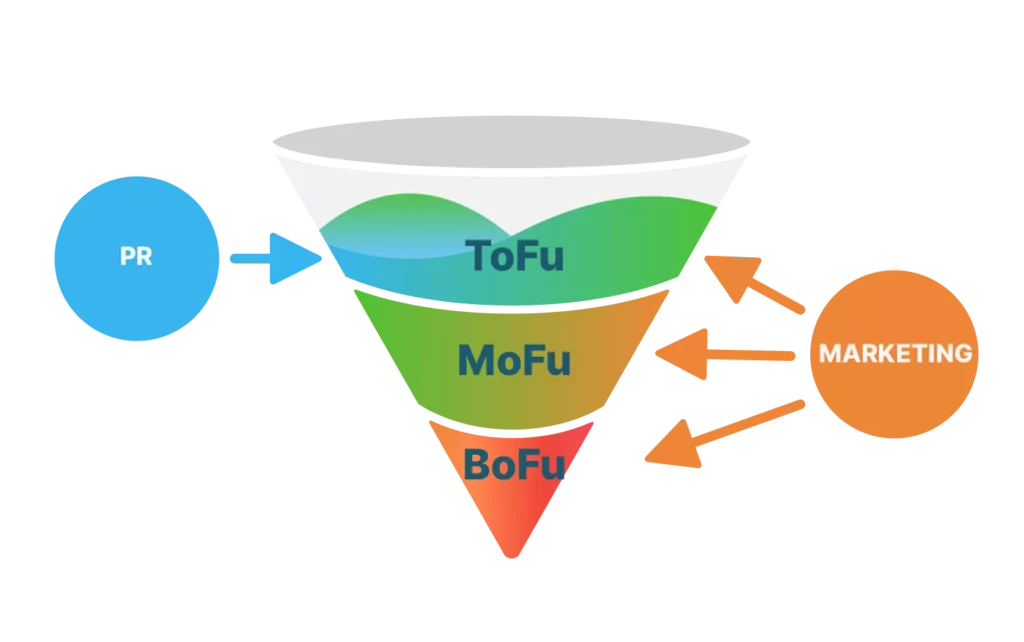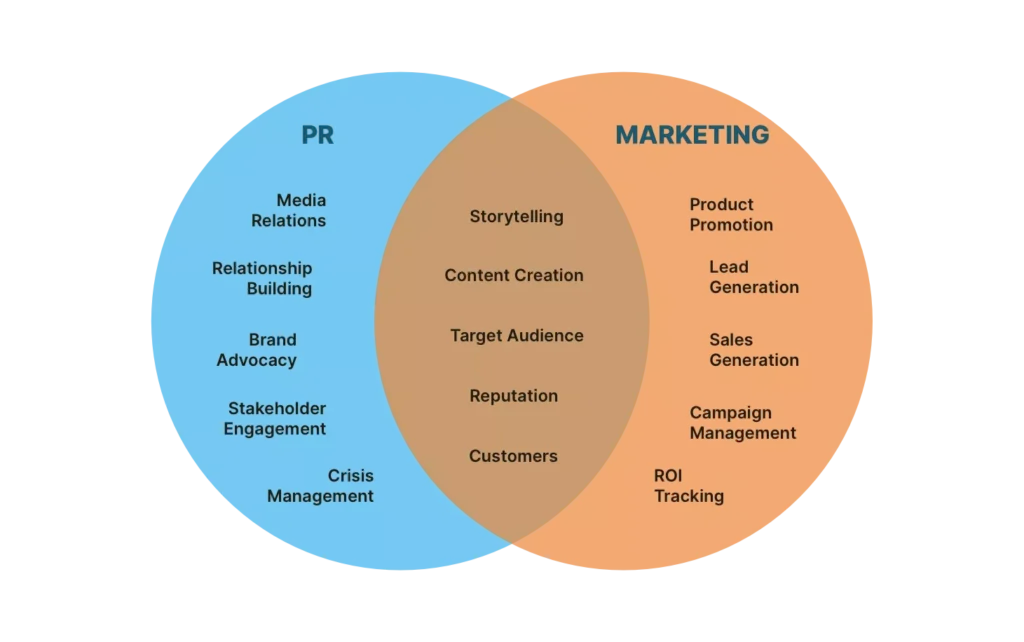You want to grow your business, right? You need customers, investors, and a solid reputation. That’s where PR and marketing come in.
But wait, aren’t they the same thing?
The line between the two is quite blurry and they often overlap, yet they are very different in what they achieve. Which one should you use? Perhaps both of them?
Marketing is the business of attracting and retaining customers by promoting and selling products or services. So, anything you see that tries to sell a product or form a connection with a customer is considered marketing (even now you’re being marketed to by reading this blog).
There are many different functions of marketing. The most familiar styles include:
(Personal Record? Puerto Rico?) Nope – Public Relations.
PR is a Reputation Architect. That means you’re shaping how the world sees your company.
You’re not directly selling anything, but you’re building a positive image to attract customers, investors, and the media, cleaning up the messes that a brand might make.
You can be “smart” and use PR as a form of marketing, but more about that in the end.
If you’re going to a press conference and you need someone to train you in what you can and cannot say, you’re going to hire a PR professional. Or, if the public eye catches your employee doing something that might damage your business, not all hope is lost. One of the PR’s goals is to fix crises such as these.
PR is all about:
This involves a huge variety of daily tasks that draw media attention to your company. For example, journalists and broadcasters will share things about your brand through specific media outlets and strengthen your image to the world (clients, investors, stakeholders).
While there are many different ways, both paid and unpaid, that PR teams actually get in contact with media outlets, the outcome should be the same – the media should be promoting the business in a positive light.
Contrary to media relations, which draw attention toward your company, crisis management draws attention away from your company.
Turning negative situations into opportunities to rebuild your image. A bad review?
Let’s do a public apology, a swift fix, and stay low-key until the dust settles.
PR specialists will elaborate on what happened, be transparent about the event, and remind the world about the positive sides of your business.
Happy employees can be your best brand ambassadors. But in a larger business, it’s inevitable for some conflicts and issues to arise. That’s why PR teams can work with your employees to see that all conflicts and doubts about your company are resolved.
Also, they can organize fun events and awards to make your workers’ days more exciting and to make them feel valued.

While PR often focuses on the top of the marketing funnel, drawing attention and building brand awareness, marketing works across all stages, from attracting customers to nurturing relationships and driving sales.

Both use content and branding to build trust and reach their target audiences. But here’s the difference:
Think of PR as a secret weapon for your marketing strategy.
Each time you do some marketing, you’ll also do some PR.
Each time you do some PR, you’ll also do some marketing.
A well-crafted story can resonate with your audience and drive sales. Why would you only use PR for investors and the media, when you could find a way to appear as the most beautiful company in the world in your customers’ eyes?
The answer depends on your business goals and where you are in your journey.
Read the next post. We discuss how to practically use PR as a form of marketing.

Email subscription is available ONLY TODAY (oh, okay, and tomorrow).
Surely, we respect your inbox! Unsubscription works every day.

We’d love to tailor your experience — which of these best describes you?